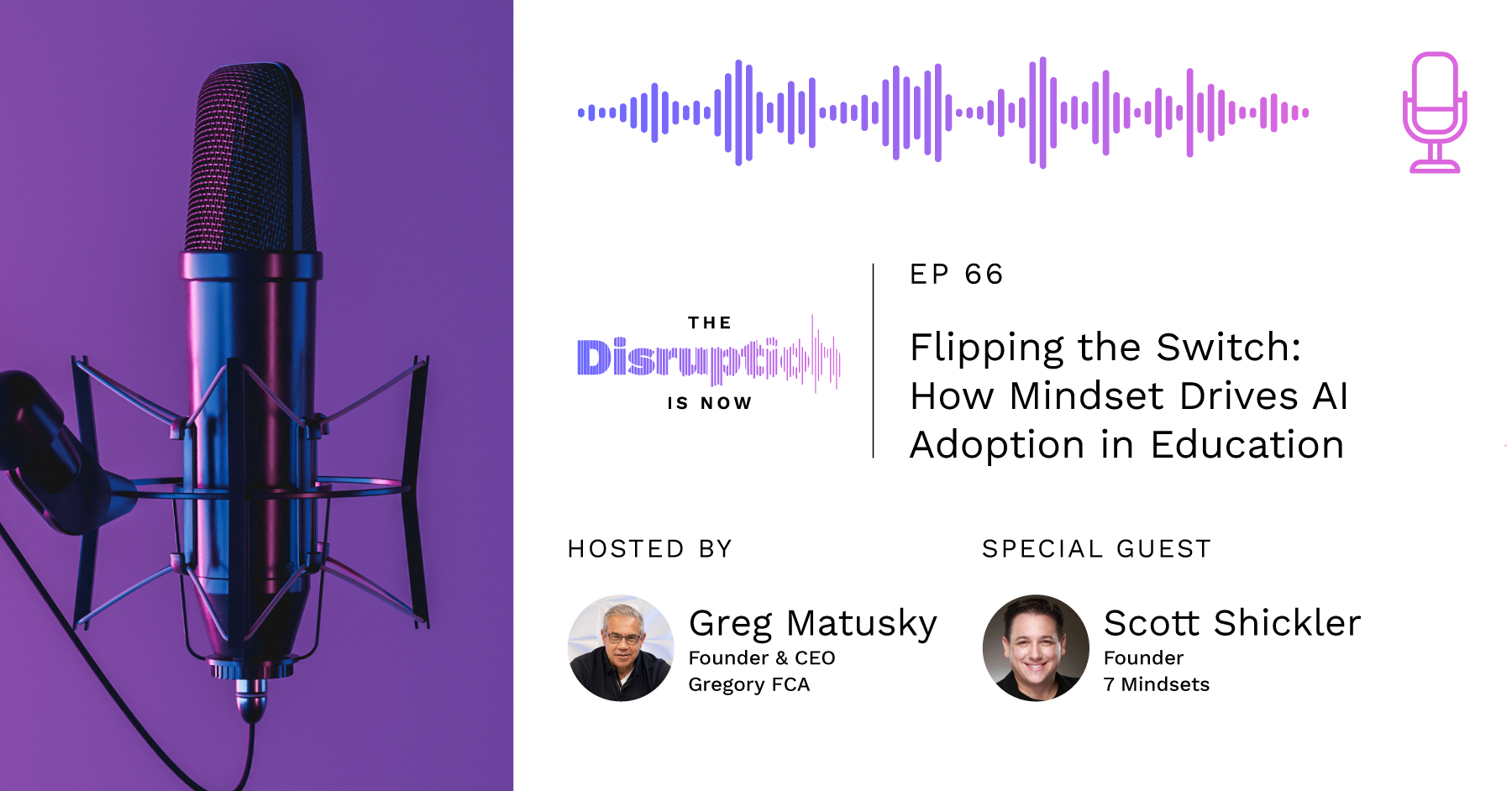Stop trying to understand AI tools and start trying to understand yourself.
Scott Shickler, CEO of Seven Mindsets, argues that most resistance to AI — and the key to thriving with it — has nothing to do with technology and everything to do with how we think.
In a conversation with host Greg Matusky on The Disruption Is Now, Shickler reframes the AI conversation around mental conditioning. What if the barrier to success isn’t skill but mindset?
This episode offers a more human look at how personal development strategies rooted in educational psychology are becoming essential in the age of AI.
Watch now:
Key takeaways
Mindset matters more than skillset for AI mastery
Shickler’s team studied global leaders and over 200,000 students, discovering seven core attitudes that shape fulfillment and achievement.
Their research into what drives happiness and success led to a surprising conclusion: Most people’s outcomes aren’t determined by their technical skills, but by their mindsets.
Among them is a belief that “everything is possible” — a direct antidote to fear-driven responses to AI. The danger isn’t falling behind on tools, but getting stuck in self-limiting patterns of thought that keep you from exploring new possibilities.
Negative thinking is automatic — and it’s holding back AI adoption
We process 30,000 to 50,000 negative thoughts a day, and most of them operate beneath the surface. Shickler calls these “automatic negative thoughts,” or ANTs, and describes how they corrode confidence, stifle ambition, and block change.
For business leaders introducing AI to their teams, this insight is critical. Resistance may have nothing to do with the tool and everything to do with deeply ingrained self-protection mechanisms.
Teaching people how to identify and override those thoughts can make AI adoption faster, easier, and less emotionally charged.
Leaders must model curiosity and accountability for real transformation
Matusky describes how he became the test case for AI within his company, diving in first so his team could follow without fear. That vulnerability and willingness to experiment created a safe space to fail and learn.
Shickler frames this as 100% accountability, one of the seven mindsets that drive fulfillment.
Leaders who want teams to embrace AI must model the exact behaviors they hope to see, including openness, experimentation, and personal responsibility.
Key Moments
- Scott’s magic wand vision for his sons (5:02)
- What three years of research found about mindset (8:14)
- Richard Branson’s dream bigger revelation (12:51)
- Bill Murray’s rule about the key to happiness (18:51)
- Scott Rigsby’s insight about dreaming bigger (22:06)
- Buying lunch for Hakeem Olajuwon (25:41)
- How Lori Greiner reframes failure (28:30)
- Greg’s AI experiments that created a safe culture for mistakes (30:28)
- Scott’s call to update your mental operating system (34:29)



